Does Clinton email report help or hurt Trump?
- Published
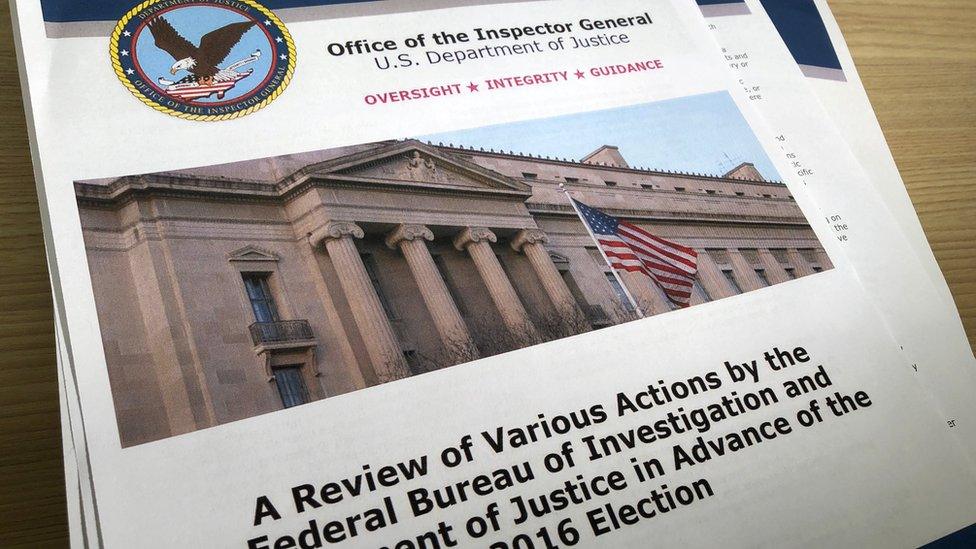
The Department of Justice Inspector General's report is out, and it doesn't pull its punches.
Over the course of 500 pages, Michael Horowitz has very pointed criticism of former FBI Director James Comey and other top FBI officials for their actions during the 2016 investigation into Hillary Clinton's use of a private email server while she was secretary of state.
Here's a rundown of the key players in the 2016 drama and what the inspector general's report means for them.

Donald Trump
The president will likely celebrate the fact that Mr Horowitz had critical words about James Comey and claim that it undermines the former FBI director's credibility going forward - but he'll be doing it for all the wrong reasons. His actions weren't part of a deep state conspiracy to help Mrs Clinton. If anything, they hurt her.
Rather than assailing Mr Comey for failing to charge Mrs Clinton with a crime - to "lock her up", as candidate Trump frequently urged - the inspector general said the former FBI director mishandled the way he announced her exoneration and displayed a "serious error in judgement" in telling Congress he was reopening the investigation on the eve of the election.
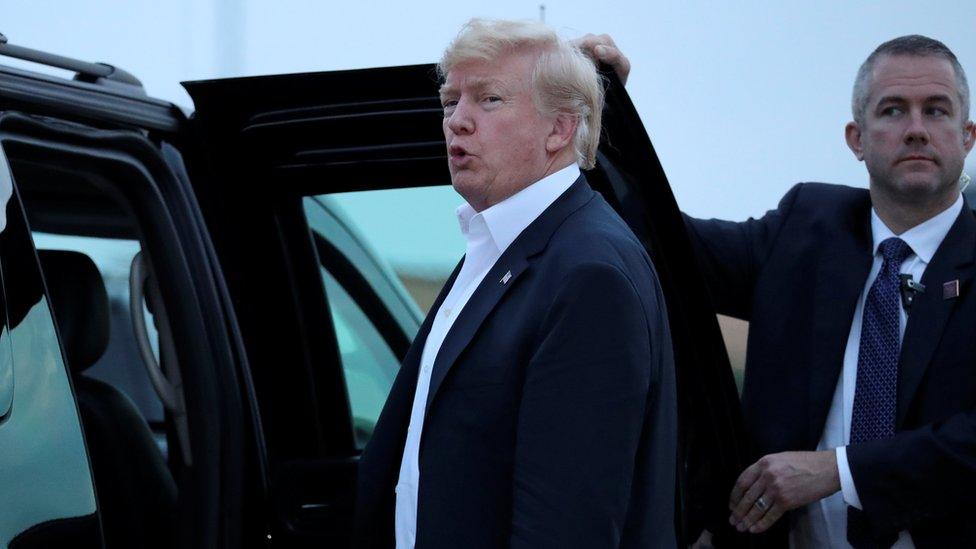
These deviations from FBI policy, ironically, were the original justification for Mr Trump's decision to dismiss Mr Comey as FBI director last spring - before the president told an interviewer that it had to do with the Russia investigation and later asserted that it was because Mr Comey was a showboat, a leaker and a liar.
Mr Horowtiz also downplayed allegations that Deputy FBI Director Andrew McCabe was compromised by Democratic campaign donations to his wife in 2015, which was something the president has repeatedly cited as evidence that Mr McCabe had a partisan axe to grind against the president.
What the inspector general report does detail - and what will be echoed and amplified by Mr Trump and his supporters in the coming days - is evidence of anti-Trump sentiment among several key members of the FBI throughout 2016.

Peter Strzok
Michael Horowitz singles out two senior FBI employees for particular criticism in his report. Peter Strzok, who was chief of the FBI's counterintelligence section in 2016, and FBI lawyer Lisa Page were having an extramarital affair and used their government phones to exchange text messages that frequently disparaged Mr Trump.
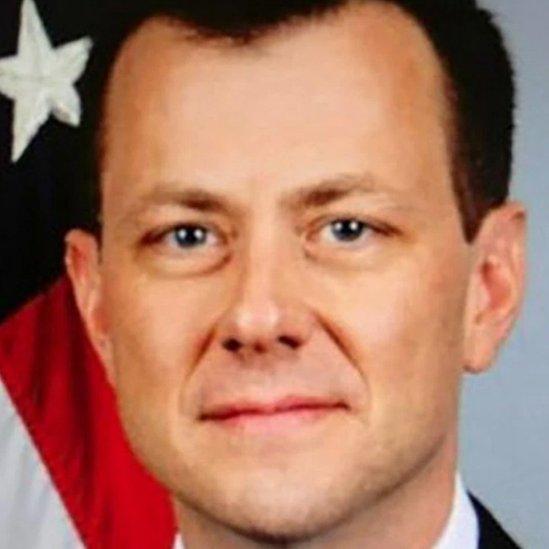
Some of these messages had already been publicly released, but one revealed in the report could prove particularly damning.
"[Trump's] not ever going to become president, right? Right?!" Ms Page wrote.
"No," Mr Strzok replied. No he's not. We'll stop it."
The inspector general concluded that the text show a "biased state of mind but, even more seriously, implies a willingness to take official action to impact the presidential candidate's electoral prospects."
Mr Horowitz concluded that there was no evidence that these views affected the FBI's handling of the Clinton investigation - and, in fact, Mr Strzok had recommended more aggressive investigation of Mrs Clinton at times.
Any impact on the Trump-Russia inquiry - which Mr Strzok also had a role in - was outside of the inspector general mandate, however - and Mr Horowtiz does note that he couldn't rule out bias in Mr Strzok prioritising the Trump investigation over the Clinton one in the closing days of the campaign..
In the report the two defend their texts by explaining that they were personal opinions.
"I'm an American," Mr Strzok said. "I'm entitled to an opinion."
Mr Strzok was removed from the investigation into Russian election meddling last July after Mr Horowitz informed special counsel Robert Mueller of the texts.
The inspector general also mentions three other unnamed FBI employees involved in the Clinton investigation who "brought discredit to themselves, sowed doubt about the FBI's handling of the … investigation and impacted the reputation of the FBI".

James Comey
The former FBI director is the central player in the inspector general's report, and bears the brunt of the blame for what Mr Horowitz views as a seriously mishandled investigation.
The inspector general does not take issue with the way the investigation was conducted, finding that the techniques and manner in which information about Mrs Clinton and her use of a private email server were "not unreasonable" and that the conclusion not to charge her with a crime were valid "legal and policy judgements".
Where Mr Comey erred, Mr Horowtiz found, was in deviating from FBI practice and substituting "his own subjective, ad hoc decision making" for those of his superiors in the Department of Justice. He wrote that it was "extraordinary and insubordinate" for Mr Comey to conceal from the attorney general that he was planning to hold the July 2016 solo press conference on the Clinton investigation.
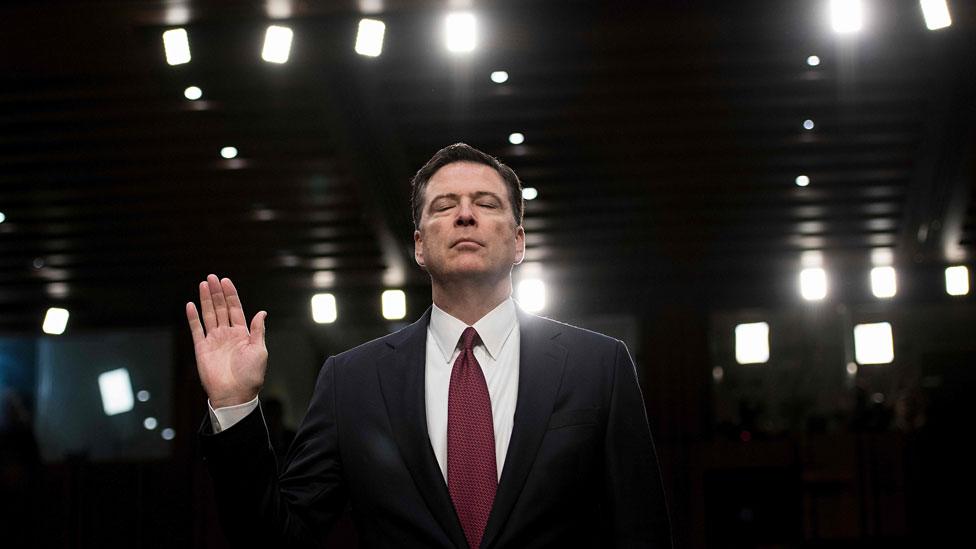
He also said Mr Comey made a "serious error in judgement" in sending the election-eve letter to Congress announcing that he was re-opening the investigation. It had been an iron-clad Department of Justice rule that its officials avoid making public investigatory and prosecutorial announcements in the run-up to elections. It was a rule that Mr Comey should have followed.
"Comey's description of his choice as being between 'two doors', one labelled 'speak' and one labelled 'conceal' was a false dichotomy," Mr Horowitz wrote. "The two doors were actually labelled 'follow policy/practice' and 'depart from policy/practice'."
In fact, the inspector general says that Mr Comey told him the reason the FBI didn't sign on to an October 2016 intelligence community statement accusing Russia of hacking Democratic Party officials was because he wanted to "avoid taking an action that could have some impact, even unknown, on an election".
In another ironic twist, the inspector general also noted that Mr Comey had used personal email for unclassified FBI business in "numerous instances" - the same sort of behaviour that had landed Mrs Clinton in the FBI's investigatory crosshairs.

Loretta Lynch
Barack Obama's attorney general released a statement on Thursday afternoon saying that the inspector general's report "upholds my fidelity to the rule of law throughout the email investigation." Ms Lynch took her share of hits, however - primarily for not being forceful enough in her handling of events.
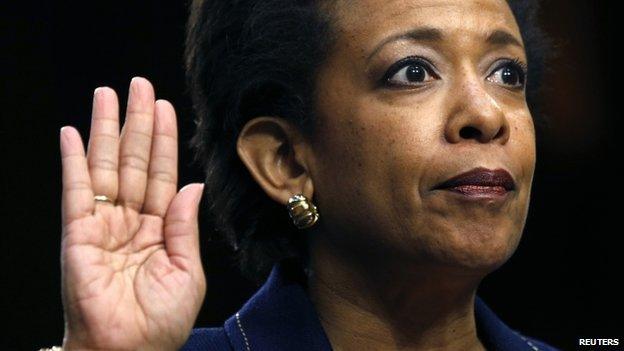
Loretta Lynch is the first black woman to hold the post of US attorney general
According to Mr Horowitz, the attorney general should have known that her 1 July, 2016, meeting with former President Bill Clinton in an airplane on the tarmac of the Phoenix airport created an "appearance problem" and that she should have known to extricate herself from the situation more quickly.
Four days later, when Mr Comey told her that he was about to make his press announcement about the Clinton investigation, Ms Lynch should have ordered the FBI director to inform her of his conclusions. She was Mr Comey's boss, Mr Horowitz notes, and retained final prosecutorial authority.
More from Anthony:
Ms Lynch also should have been more involved in Mr Comey's decision to send the October letter to Congress. Although the Obama Department of Justice objected to the FBI director's decision, Ms Lynch never directly communicated with him and, instead, gave him the impression that the final decision was his.
Given that Mr Horowitz concluded that the letter was a serious error, part of the blame rests on Ms Lynch.
"We found it extraordinary that Comey assessed that it was best that the FBI director not speak directly with the attorney general and the deputy attorney general about how best to navigate this most important decision and mitigate the resulting harms," Mr Horowitz writes.

Hillary Clinton
The inspector general report will likely be cold comfort for the 2016 Democratic presidential nominee. While it does not reconsider the decision that there were no grounds for criminal charges against her for mishandling classified information, Mr Horowitz clearly states that Mr Comey's investigatory process and conclusion that no action was warranted were proper and free from bias.
The report also notes that the two most prominent public actions by the FBI - the July press conference and the October letter to Congress, both of which did damage to Mrs Clinton's presidential hopes - were improperly conducted.
Clinton laments Comey letter in explaining her loss
In addition, it appears Mrs Clinton got little help from the Obama administration, and Ms Lynch in particularly, which appeared wracked by doubts about how to proceed and ended up sowing confusion among the public and allowed Mr Comey the free hand to make his fateful - and, in the inspector general's view, improper - decisions.
Mrs Clinton has offered only one response to the inspector general report so far, a quote of a tweet about Mr Comey's own use of private emails for government business in which she riffs on a popular internet meme that mocks the media's focus on the 2016 server investigation when much larger issues were at stake.
"But my emails," she writes, external.